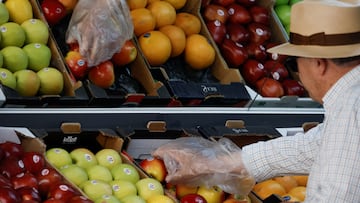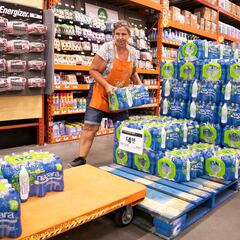5 food items that nutrition experts won’t buy at the grocerty store
Shopping at the supermarket certianly makes things easy, but there are some foods you should stay clear off due to the health dangers that are associated.

Stocking your pantry is not such an easy feat when trying to be healthy. The truth is that not all the foods sold there are good for your health, especially those which are characterized by being fresh products but which are sold packaged in these types of stores.
According to a report by Huffpost, these are the five foods that nutrition experts do not recommend buying in supermarkets.
The 5 foods you should avoid buying in the supermarket (for health reasons)
Ready-to-eat foods
Food that is prepared directly in supermarkets and sold in the ready-to-go section is very prone to becoming filled with bacteria since it is difficult to keep them safe.
September is Food Safety Education Month and this week we’re diving deep into the first step of food safety, CLEAN, to show you its importance in reducing the risk of foodborne illness. #FSEM2023 pic.twitter.com/bFq1z7H4mu
— USDA Food Safety & Inspection Service (@USDAFoodSafety) September 5, 2023
In fact, the United States Department of Agriculture classifies them within the “danger zone” because it is easier for bacteria to develop, especially if they remain inside a container for too long. more than two hours.
Pre-cut fruit
According to Darin Detwiler, president of the Food Safety Program of the National Environmental Health Association, on many occasions, the health measures used by workers are not usually correct when handling fruit.
There is no easy way “to tell if these are not suitable for consumption, for example, if they are rotten, stale or fermented,” until you get home, says Detwiler.
Lettuce in bag
Bagged lettuce is the cause of several E.coli and listeria outbreaks due to a lack of “transparency and traceability” in stores, so it is best to buy the lettuce fresh and disinfect it at home.
“Why, after all these incidents, would we still open a bag of leafy greens ’pre-washed’ mixed and ready to eat?”, Detwiler questions, adding that food safety is “more important than convenience.”
Melon
While it is not recommended to buy pre-cut fruit in general, melon is one of the most dangerous since “they have an exterior that cannot be cleaned properly to kill pathogens”, while“the pH of the interior favors the rapid growth of pathogens”.
In 2011, cantaloupe was the cause of a national listeria outbreak that killed at least 33 people and sickened 147 others.
Counter products (Delicatessen)
Related stories
Experts also do not recommend buying meat or chicken at counters, commonly known as Delicatessen.
Remember, it’s CLEAN, then SANITIZE to prevent cross-contamination, AKA the spread of bacteria! https://t.co/YbNJOSWQeC #TipOfTheWeek pic.twitter.com/jDDuMsodDx
— USDA Food Safety & Inspection Service (@USDAFoodSafety) September 5, 2023
“Employees often know little about food safety, they don’t follow ‘first in, first out’ policies, they have no idea where the product comes from or how long it has been there”, says Detwiler.

